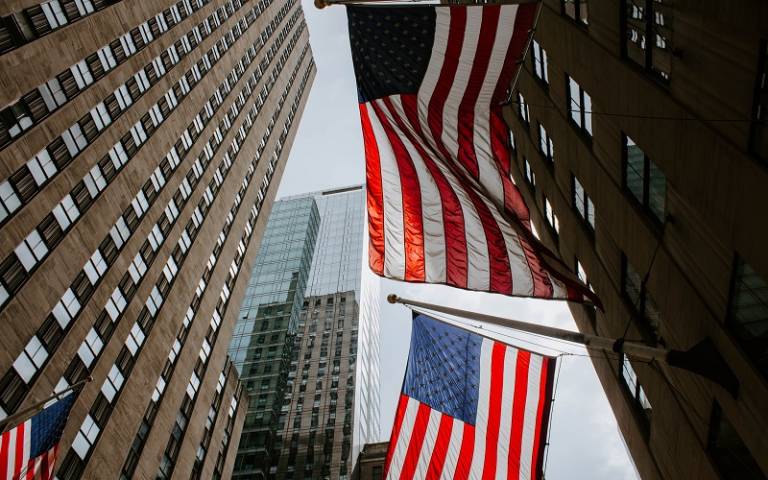Lunch Hour Lecture review: 'Trump, 2020, and America in a Post-COVID World'
8 July 2020
Student Journalist Eamonn Lynch-Bowers reviews the latest gripping Lunch Hour Lecture by Dr Brian Klaas – a weekly columnist for the Washington Post and political scientist at UCL. Wondering about the possible outcomes of the upcoming Presidential election? Read on to find out...

Just a few short months ago, Donald Trump appeared to be in pole position to retain the US presidency in this year’s upcoming election. Despite the political turbulence of his administration, the economy was performing remarkably well and the President was at the height of his popularity, while his Democrat rivals were still squabbling amongst themselves. What a difference a pandemic makes! There are few areas of modern life that have remained untouched by coronavirus and the 2020 race for the White House is no exception. In a virtual Lunch Hour Lecture from UCL Minds, associate professor of global politics Dr Brian Klaas updated his attendees on the state of the contest in a (post-) COVID world.
Dr Klaas first identified what he calls the President’s Catch-22; Trump is now being pulled by two competing electoral forces. On the one hand, the path to the White House runs through the ‘persuadable middle’, that mystical subset of the American electorate that neither consistently votes Democrat nor Republican, but rather flip-flops between the two. Above all, these voters are typically most concerned for jobs and the economy. But lockdown measures used to control the pandemic have hit US businesses hard. In a year in which the presidential race will almost certainly become a referendum on the incumbent, this kind of financial shock may make the ‘persuadables’ less likely to take a further risk by re-electing one of the most volatile presidents in American history. On the other hand, in 2016 Trump won amongst older voters – an enormous asset given the high turnout of this demographic – who are more troubled by high infection rates. In this regard, eschewing lockdown in favour of economic recovery is likely to threaten Republican prospects come November.
And so we come to the million-dollar question: will Trump win again? Certainly, Klaas admits he would much rather be in Joe Biden’s camp right now. In 2016, Trump had only a very narrow path to the presidency open to him – indeed Klaas views his election as a kind of last hurrah for white nativist America. Correspondingly, in 2020, Biden need only win back a handful of highly marginal states, normally won by Democrats but lost by Hilary Clinton, to reclaim the White House, putting the Dems in a favourable position. But the President’s handling of coronavirus has been a further electoral gift to the Biden campaign. Very few Americans now believe the country is headed in the “right direction”, which means that Trump’s low popularity ratings are likely to follow him for longer than they have ever done before. Moreover, COVID-19 appears now to be affecting rural areas – Trump’s heartlands – more acutely than liberal-leaning coastal states, which were initially hit by the first wave of infections but are now coming through to the other side.
As for the post-election period, Klaas foresees two possibilities. If Biden wins, many are concerned that Trump will refuse to leave quietly given the President’s history of disputing election results. By contrast, if Trump emerges victorious, we may yet see a more noticeable geopolitical shift, as America’s allies begin to write her off as an unreliable, unstable, and untrustworthy global partner.
Whatever the result, one thing is for sure; this year’s election is likely to be one of the nastiest in modern American history. In such epochal times, Dr Klaas’ lecture provided an illuminating insight into a race that was already set to be game-changing even before the COVID-19 outbreak. The world, as ever, will be watching.
By Eamonn Lynch-Bowers
 Close
Close

